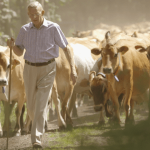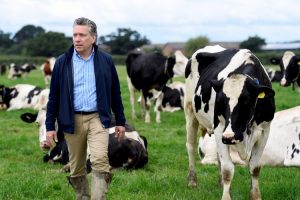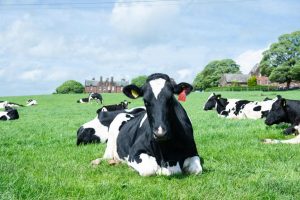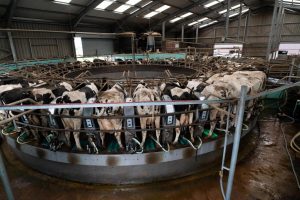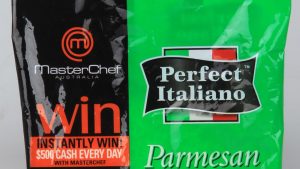
Scotland’s Rural Economy secretary Fergus Ewing said he didn’t believe the proposed £10,000 aid package for farmers in England and Wales who have lost more than 25% of their milk income during April and May would be effective here.
He made the comments after a meeting with representatives of the Scottish dairy industry, and after an AHDB report revealed Scottish dairy farmers have not been as severely impacted by the pandemic as those elsewhere in the UK.
Mr Ewing said details of the package being proposed down south were still not clear, but it was his “understanding” the support would not be new money, but would instead be funded by slicing off some of next year’s basic payments due to all farmers.
He added: “In my discussion with a group from the (Scottish) dairy sector there was scepticism of the Defra proposal which isn’t fully worked out yet.
“Will other English farmers be paying the dairy farmers with part of their own basic payment? I’m not sure that would go down well. And I’m not sure a compensation package is sufficient in cash terms to be effective.
“At the meeting this week it was the view it wouldn’t solve the real problem, rather it might be seen as ticking a box and giving the impression the problem has been solved, when it hasn’t.”
The farmers’ union’s milk committee chairman Gary Mitchell confirmed the committee had met in private with Mr Ewing to discuss the impact of Covid-19 on the sector.
He said: “We are desperately keen to help dairy farmers but the way the scheme for England has been put together needs a serious amount of clarification.
“Details on how the scheme will operate and how producers would apply are still unclear.
“We do need to make sure that the worst affected are helped. We continue to look at what measures would best support Scottish dairy farmers.”
Mr Ewing said if dairy farmers in Scotland could demonstrate real hardship he would be open to “considering what could be done”.
Looking ahead, he said the government might be able to help in future with support for more processing capacity, to help broaden opportunities for powdered milk and other produce. He said another long-term solution to the vulnerability of individual farmers in both the dairy and beef sectors was to look again at the co-operative model.
“Co-ops are a way of farmers reducing costs, retaining premium prices and also increasing their bargaining in the food supply chain,” he said.
“It’s a model that’s been tried and tested in the farming world. The difficulty is persuading individual farmers to depart from an existing system where many are happy with with the relationship they have with processors.
“I’m not here to castigate meat or milk processors, many have excellent relationships, but overall the co-op model might be one answer.”
A Defra spokesman said detail on the support fund would be issued “in due course”.
